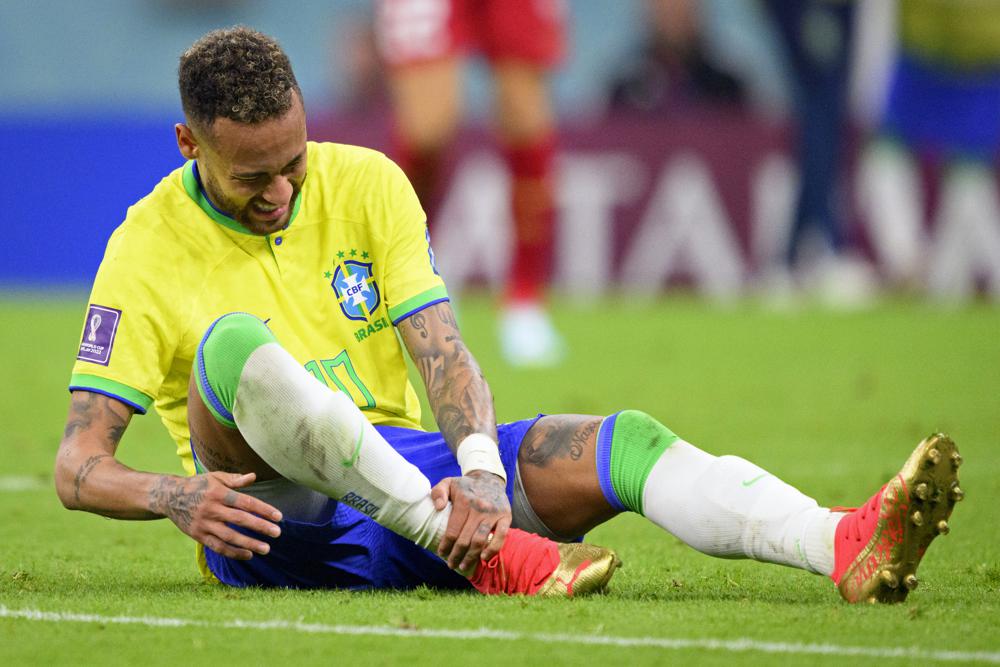

Neymar sat crying on the bench and later left the stadium limping with a swollen right ankle after Brazil’s 2-0 victory over Serbia at the World Cup on Thursday.
Brazil team doctor Rodrigo Lasmar said Neymar sprained his ankle.
“We put ice on it while he was on the bench and then in physiotherapy,” Lasmar said. “There is no test scheduled for now but we will schedule it if needed. He will be under observation. We will know more tomorrow.”
Brazil coach Tite said he was “confident that Neymar will continue playing at the World Cup,” but Lasmar said it was too early to comment on the extent of the injury.
Neymar was also injured at the 2014 World Cup. Playing at home in Brazil, his tournament ended with a back injury in the quarterfinals against Colombia when he had to be taken off the field on a stretcher. Brazil ended up losing to Germany 7-1 in the semifinals.
Neymar, who was fouled nine times in the match against Serbia, got injured in the second half and was substituted in the 79th minute. Tite said he stayed on the field for 11 minutes before asking to be replaced.
“He overcame the injury because the team needed him,” Tite said. “I didn’t even see that he had been injured. He just kept playing.”
Neymar was in tears on the bench as doctors began treating him in the final minutes of the game at Lusail Stadium. He pulled his shirt over his head as doctors taped ice around his foot. He went into the locker room limping, and also limped as he left the stadium without speaking to reporters.
“The most important thing for us it to have him at 100% for the next match,” said Brazil striker Richarlison, who scored both goals on Thursday, including one after a buildup started by Neymar. “When I get to the hotel I’m going to go and see how he is doing.”
Neymar was tackled hard a few times during the match and was limping and grimacing before having to leave the field. He was the most fouled player on the field.
The 30-year-old Neymar has yet to win a major title with the national team. He helped the “Seleção” win the 2013 Confederations Cup and its first Olympic gold medal at the 2016 Rio de Janeiro Games.